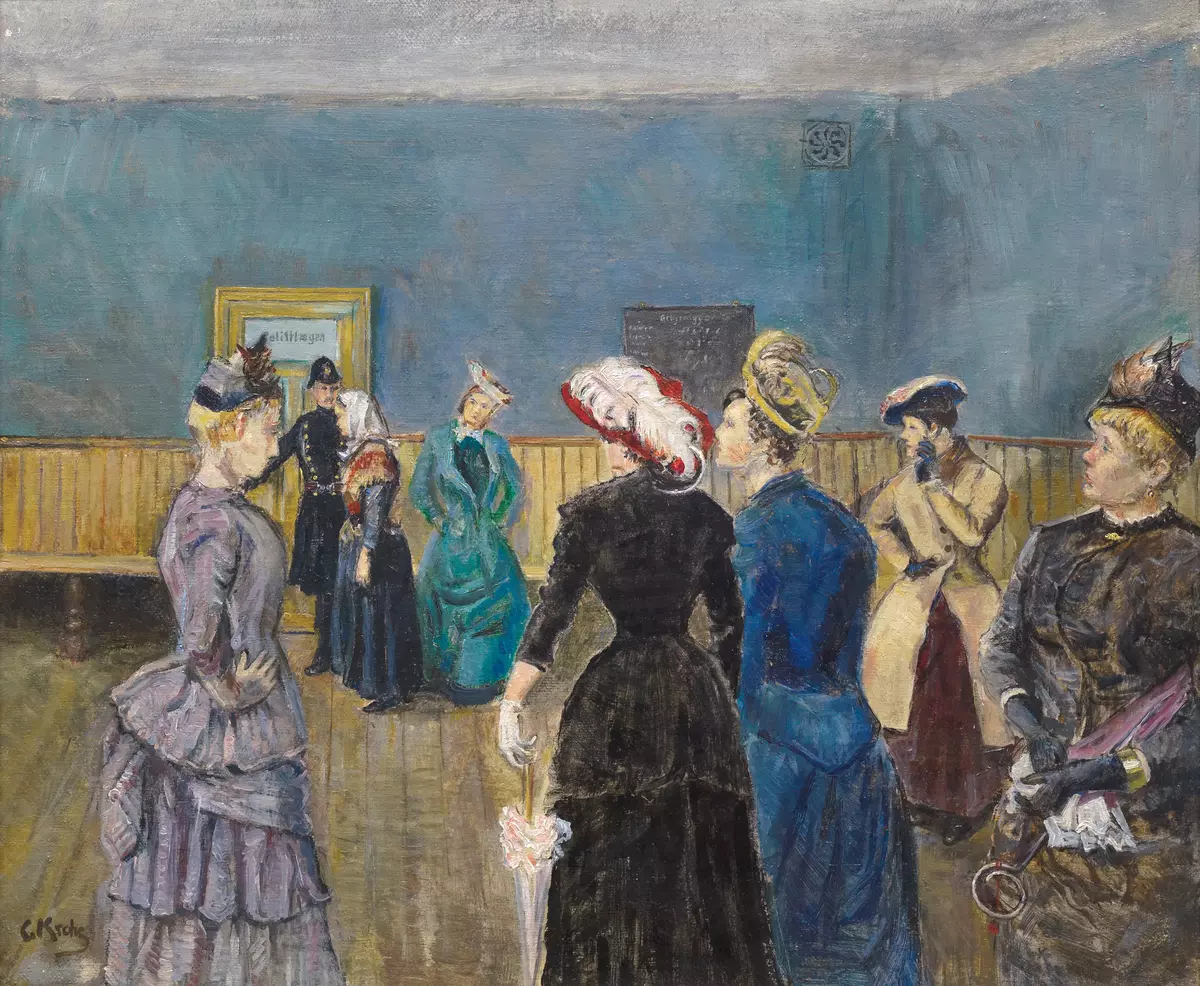- 1/1
Christian Krohg, Albertine i politilegens venteværelse, ant. 1917. Photo: Trond W. Andersen. Reproduced with permission from Christen Sveaas’ Art collection.
Synnøve Anker Aurdal, Sverre Bjertnæs, Bruce High Quality Foundation, Merlin Carpenter, Gardar Eide Einarsson, Arne Ekeland, Liam Gillick, Bjørn Melbye Gulliksen, Ane Hjort Guttu, Knut Henrik Henriksen, Georg Herold, Irma Salo Jæger, Allison Katz, Kristoffer Cezinando Karlsen, Martin Kippenberger, Greta Klemetsen, Michael Krebber, Christian Krohg, Andrea Lange, Victor Lind, Michel Majerus, Édouard Manet, Edvard Munch, Ernesto Neto, Albert Oehlen, Sex Tags, Matthias Stoltenberg, Vibeke Tandberg, André Tehrani, Charline von Heyl, Lars Monrad Vaage, Fredrik Værslev, maybe a few more?
Curated by: Erlend Hammer.
"I think it seems like a very complete and exciting exhibition. Based on what we have heard, I think it hits the target audience very well."
What is “the new museum reality”?
“I think it has to do with increasing complexity. The museum faces a lot of expectations, and we need to find a balance, across the lines of traditional museum-related tradecraft, and the demands placed upon leaders are probably correspondingly more complex than before.”
What is a bureaucrat?
bureaucrat noun
/ˈbjʊərəkræt/
/ˈbjʊrəkræt/
(often disapproving)
an official working in an organization or a government department, especially one who follows the rules of the department too strictly
He was just another faceless bureaucrat.
battles between political appointees and career bureaucrats
We got caught up in the endless red tape of local bureaucrats.
Word origin
mid 19th cent.: from French bureaucrate, from bureaucratie, from bureau, originally ‘baize’ (used to cover writing desks), from Old French burel, probably from bure ‘dark brown’, based on Greek purros ‘red’.
What does Marx say about the capitalists?
The capitalists unjustly appropriate too much of the workers' labour results. (Quizlet.no).
What’s going on with the snail?
It’s being ridiculized. (Herr Krebber).
What is co-creation?
«Æ-æ. No idea.» (Verde, 5 years old).
What is a curator?
curator
noun
cu·ra·tor ˈkyu̇r-ˌā-tər ˈkyər-; kyu̇-ˈrā-; ˈkyu̇r-ə-, ˈkyər-
plural curators
: a person who oversees or manages a place (such as a museum or zoo) that offers exhibits
"My passion for animal care and collection management really drove me to become a curator."
—Scott Newland
also: a person at a museum, zoo, etc. who is in charge of a specific collection or subject area
the curator of manuscripts (Merriam-Webster).
What is austerity?
Austerity refers to economic policies implemented by governments aimed at reducing public sector debt. These policies typically involve spending cuts, tax increases, or a combination of both. The primary goal of austerity measures is to reduce budget deficits and national debt levels to ensure long-term fiscal sustainability.
Key aspects of austerity include:
- Spending Cuts: Reductions in government expenditures, particularly in areas like social services, public sector wages, and infrastructure
- Tax Increases: Raising taxes on individuals and businesses to increase government revenue
- Structural Reforms: Changes to policies and institutions intended to improve economic efficiency, such as pension reforms or labor market regulations
Austerity measures are often controversial because they can lead to reduced economic growth, increased unemployment, and social unrest. Critics argue that such measures can be counterproductive, especially during economic downturns, as they may exacerbate economic contractions and increase social inequality. Proponents, however, contend that austerity is necessary to restore fiscal balance and maintain investor confidence, which can lead to long-term economic stability and growth. (ChatGPT).
What is the art museum?
...
What is labour?
«Tout est travail.» (Tiqqun).
What is this all for?
It’s you, it’s you, it’s all for you (Lana).
- 1/1
Synnøve Anker Aurdal - Byråkratene, 1992-1993 (section). Photo: The art collection of The Storting.

